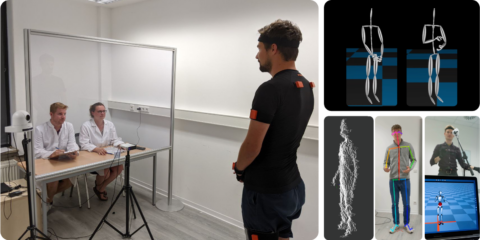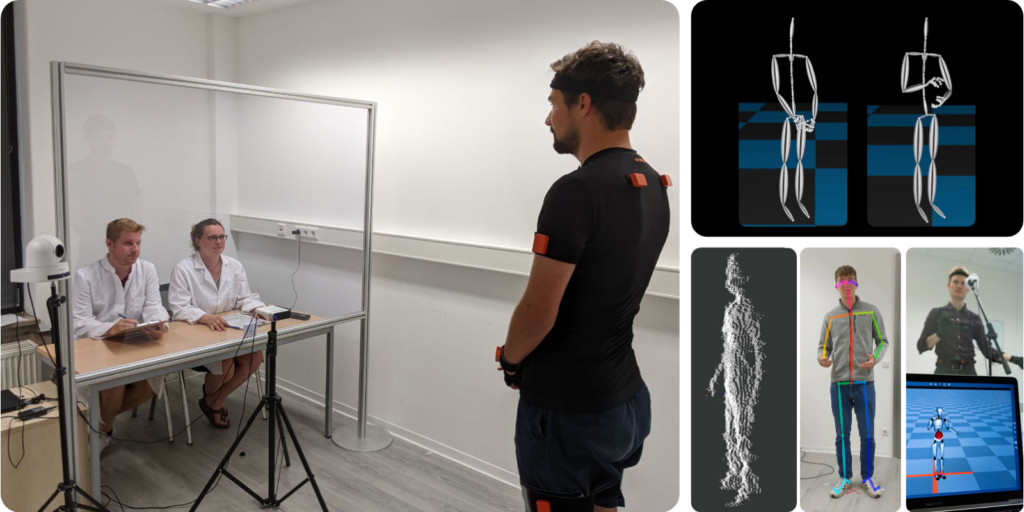ID 2511: Contactless Measurement of Acute Stress from Body Posture and Movements
Bachelor’s / Master’s Thesis / Research Internship / Project
The observation of body posture and movements is a promising extension to the established biopsychological markers for stress measurement, such as self-reports, saliva, or blood samples. Body posture and movements provide additional information about emotions. This is particularly important because the emotions of shame and pride are causally related to the cortisol stress response. Despite this link, the influence of acute psychosocial stress on body posture and movement and the use of body posture as a marker for stress measurement has remained largely unexplored. One possible reason for this lack of research is the difficulty in accurately measuring and quantifying body posture and movement.
In this project, we investigate how acute psychosocial stress influences macro movements and how these changes can be used to gain a better understanding of the human stress response.
Possible topics can include (but are not limited to):
- Investigating the human response to freezing from motion capture and posturography data
- Deep learning-based approaches for movement-based stress detection
- Multi-modal data fusion approaches for predicting stress responses
- … and many more!
We always have open topics for various types of theses in this project! If you are interested in working with us, please use the application form to apply for the topic. We will then get in contact with you and together, we can identify a suitable topic for you. You can have a look at our group page to get an overview of previous student topics in this area.
Tasks
- You will work in an interdisciplinary team with psychologists and engineers
- You have the opportunity to apply your data science knowledge to practical applications in stress research
- Depending on the topic and scope of your project, you will:
- Support in data collection
- Implement different algorithms into an existing data analysis framework
- Perform statistical and machine learning-based data analysis
- Document your code in a clear and structured manner
Requirements (depending on the topic and type of project)
- Knowledge in data science and machine learning in Python, including data processing, data analysis, and data visualization
- Interest in open science, affective computing, and psychology, especially biological psychology, psychoneuroendocrinology, and behavioral analysis
- Further skills:
- German skills for supporting in data collection
Supervisors
Prof. Dr. Nicolas Rohleder
Chair of Health Psychology
Please use the application form to apply for the topic. We will then get in contact with you.





